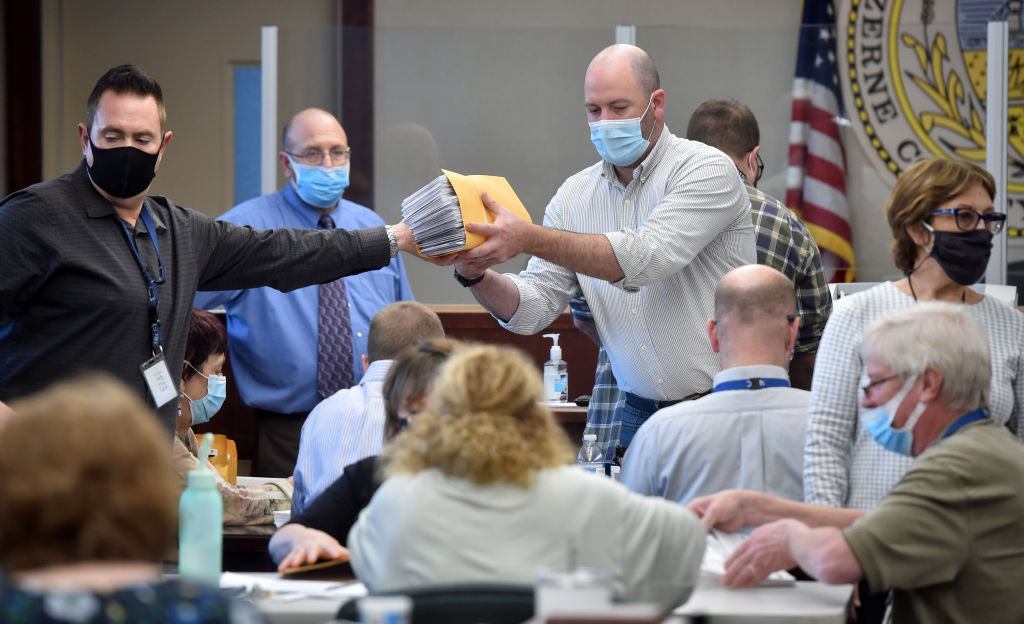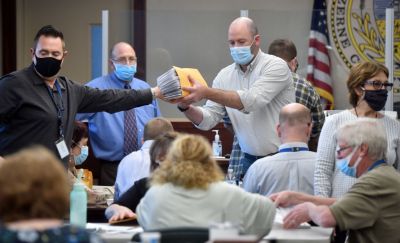This week, a long-debunked election fraud claim has resurfaced on social media. The claim, perpetuated most prominently by Trump attorney Rudy Giuliani after the 2020 election, argues that significantly more mail-in ballots were received in Pennsylvania than were sent out.
The posts are false, as they combine data from two different elections.
In October 2019, Pennsylvania adopted Act 77, an election reform bill that made mail-in voting available for most voters in the state. Because of the lockdowns and health precautions introduced at the onset of the COVID-19 pandemic, Pennsylvanians used the new mail-in voting option in high numbers during both the 2020 primary and general elections. According to state officials, more than 18 times as many mail-in ballot applications were received by the state for the 2020 primary election than for the 2016 primary election.
In the 2020 general election, Pennsylvania officials reported that 2,673,272 mail-in ballot applications—not 1,823,148—were approved and sent to voters. Of these, 2,273,490 were returned, or approximately 85 percent. A further 435,932 absentee ballot applications were also approved by the state, of which 374,659 were used to vote.
The reference to 1,823,148 mail-in ballots is not entirely made up: That was the number of ballots requests Pennsylvania officials reported processing and distributing for the 2020 primary election—not the general election as the post claims. Approximately 1.46 million mail-in ballots were returned in Pennsylvania’s 2020 primary election according to state government records, or about 80 percent.
According to legal documents filed in disciplinary proceedings against Giuliani in New York, the former New York City mayor repeated the false mail-in ballot claim on several radio shows following the election as well as in meetings with the Pennsylvania Republican State Senate Majority Policy Committee and the Michigan House Oversight Committee.
On July 2, 2024, Giuliani was disbarred in New York for his conduct. “[Giuliani] flagrantly misused his prominent position as the personal attorney for former President Trump and his campaign, through which respondent repeatedly and intentionally made false statements, some of which were perjurious, to the federal court, state lawmakers, the public, the AGC, and this Court concerning the 2020 Presidential election, in which he baselessly attacked and undermined the integrity of this country’s electoral process,” a New York appellate court wrote in a unanimous decision.
If you have a claim you would like to see us fact check, please send us an email at factcheck@thedispatch.com. If you would like to suggest a correction to this piece or any other Dispatch article, please email corrections@thedispatch.com.







Please note that we at The Dispatch hold ourselves, our work, and our commenters to a higher standard than other places on the internet. We welcome comments that foster genuine debate or discussion—including comments critical of us or our work—but responses that include ad hominem attacks on fellow Dispatch members or are intended to stoke fear and anger may be moderated.
With your membership, you only have the ability to comment on The Morning Dispatch articles. Consider upgrading to join the conversation everywhere.